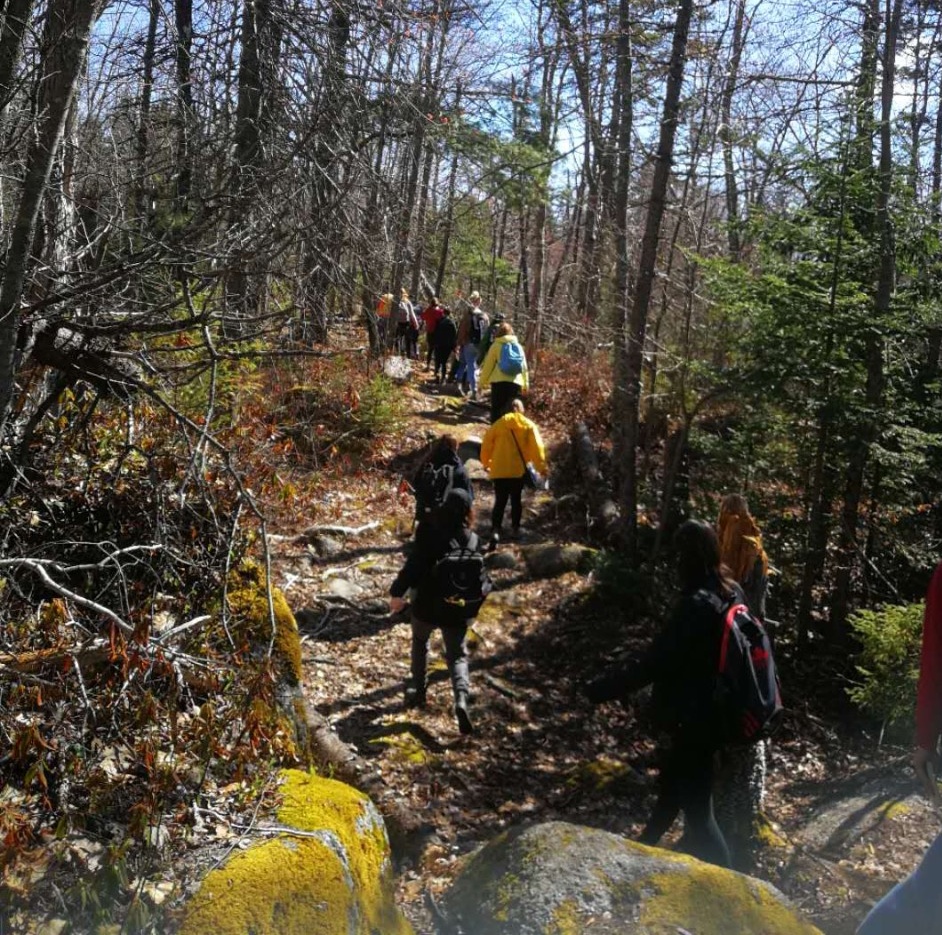ENVS2000 Urban Field School

ENVS2000 is a second-year course that runs for two weeks at the end of April, Monday to Friday, 9:00 am-4:00 pm
What will I learn in this course?
This two-week field course offers an introduction to urban environmental science by examining the role of humans in ecosystems and how humans change ecosystem processes and functions within urban areas. Areas of focus will include forests, soils, watersheds, parks and protected areas, green infrastructure, and the built environment. Students gain hands‐on experience in environmental science techniques during excursions to different settings within Halifax Regional Municipality.
Students can expect to gain:
· An understanding of urban environments and the human processes that shape them.
· An understanding of the challenges facing the sustainability of urban environments.
· Applied knowledge and hands-on skill development of environmental field methods, data collection and analysis, and communication.
What are the expectations for this course?
As a hands-on course, participation is especially important. A substantial portion of this course will be spent in the field and we will be outdoors rain or shine. Assignments will be completed individually and in a group with your peers. In 2019, the grade in this course was based on data collection and analysis, recording good field notes, participation in class activities, and a final report and presentation. Field trips for this course will be largely urban, within the Halifax Regional Municipality but may involve some hiking.
What do field course alumni have to say?
What do you remember most about the course?
“The group presentations at the end of the course were memorable as they focused on a range of urban environmental issues and mitigation proposals in the HRM such as the impact of construction on urban forests, green spaces, and mitigation for sea level rise. I also loved that we learned about urban forests as forests play such a crucial role in regulating our ecosystems, as well field methods that can applied in various field environments.” – Abby MacLean
What does a typical day in this course look like?
“Most of our field trip were within the city core, such as the south end, Halifax common, Point Pleasant Park and two far field trips to the Miller Waste Systems and a natural trail park in the suburb.” – Weiyu Shi
“Every day had a different purpose. We took various field trips to different spots in the HRM, where we would learn about aspects of the environment in an urban setting. An example would be going to the Miller Material Recovery Facility to learn about material recovery and the processes at the facility. We would also learn various field methods in the field and use the data to complete computer lab assignments (i.e., data analysis in Excel).” – Abby MacLean
Do you have any tips for students heading into this course?
“It is really important to check for the weather on the day of field trip, it can still be cold outside in early May! But the Professor James and the TAs will remind students about what to wear and bring.” – Weiyu Shi
“I was concerned about the workload since an entire credit was condensed into two weeks. And the workload was higher than a typical semester course would be in two weeks, but also very enjoyable because you were learning about applicable field techniques, often spending the day outside (which is way more fun that sitting in a classroom 😁!)” – Fourth year ENVS student
Looking for a sneak peek of the kinds of assignment in this course? Here are two examples:
Sample assignment #1: ENVS 2000_assignment_sample_1
Sample assignment #2: ENVS 2000_assignment_sample_2
More information, including the most recent course syllabus , can be found under “Second Year Courses” at: https://www.dal.ca/faculty/science/earth-environmental-sciences/programs/undergrate-studies/courses-offered--environmental-science-.html
ENVS2500 Field Methods in Environmental Science
ENVS3001 Environmental Science Field School
New to field courses, field work, or outdoor pursuits? Here are some helpful resources.
